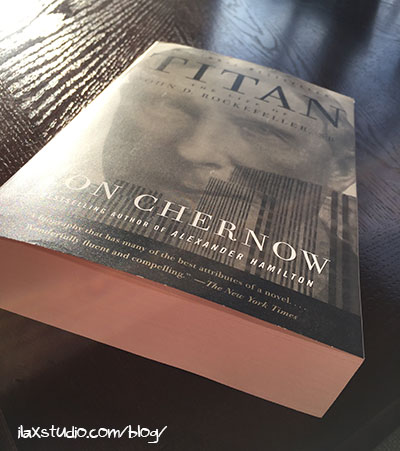Why does my vocabulary suck?
Yes, I am using the blog post title as an example.
Guys. This book is going to take me FOREVER to read. What was I thinking?
And not because it’s boring. But because every paragraph has at least one word I have to look up, and that takes time. And they aren’t words I can figure out by context. They’re typically adjectives that if I don’t look up, I am really missing the point.
Sigh. Why me so dumb?
Seriously – when and where did people learn and remember all these “big words”? It definitely didn’t happen in architecture school (but I can throw a bunch of design jargon at ya!).
P.S. I still agree with this post from 2014.*
*ME MENTIONING AN OLD POST DOES NOT MEAN I WILL EDIT IT! Ha, I just got an email yesterday with someone asking me to edit a post from 2009 to include their link. Ha, as in, GFY.


I usually can figure out words via context, but if I had to keep looking things up, I’d probably just give up on the book. Yes, I’m that lazy. 😉
I usually can too, so this is REALLY frustrating! I read 25 pages on the train this am and had to look up 49 words. Sigh. Why would I know what a “mountebank” is?
I am reading the sentence and imagining what it means as I look words up, and then the words always give it much more depth… but end up saying the same thing that could have been said with MUCH SIMPLER language. Sigh.
Not just for this reason, but I’ve started primarily downloading books to read on my phone. Looking up (the freakishly large number of) words I don’t know is super easy. Just highlight and hit “look-up”. I, too, have been alarmed with how much I didn’t know that I don’t know. When I do read an actual hard copy book, I tend to skim over unknown words because I’m too lazy (or am in bed) to look them up.
My friend was saying she likes using her Kindle because she can look up the words on the spot! I do feel too lazy to look them all up manually reading this hard copy, but I am really not getting the gist of it when I don’t. Sigh.
Will this inspire you to work on your vocabulary? My mom gets an email with the word of the day, but I often find that the words are too specific or too advanced to use in everyday (quotidian!) conversation. I guess it’s good to know them, even if you don’t use them, if they pop up in a book or, as usually happens with me, a NYT article.
It will, a bit, even though they are words I won’t use in conversation, cause they’ll make me sound like an ass 😉
Boo to having to look up the words 🙁 I would be way too lazy for that. Though I have to admit, that is one of the reasons I like e-books as well. It’s so much easier that way.
Did you have to do that with his book about Hamilton? I seriously feel like he is trying to impress someone with this language.
And it sounds like this is a HUGE perk of e-books that I a missing out on!!!
I didn’t feel like that with the Hamilton book… there were definitely words I didn’t know but they all seemed to be from quotes from the time period and I was usually able to figure it out based on context.
That’s good! I wonder if it’s just me with this book.
I’m wondering if it’s another period specific type of thing. Mountebank seems like it may have been a word that was more commonly used at that time so maybe he’s trying to use words like that to add flavor?
I am definitely getting the impression that is what he is doing!
Oh no! That’s a bummer 🙁 It must be really frustrating to have to stop so often to find out what things mean! I’m super curious what kind of words they’re throwing at you if you can’t even figure them out by context!
Here is an example sentence: Nevertheless, in William Avery Rockefeller one clearly detects the blarney and easy conviviality of a mountebank.
Words I had to look up: blarney, conviviality, and mountebank. I am not sure how I would have figured those out without looking them up. I got the sense I was supposed to think he was bad and dishonest from the rest of the text (and chapter) but I wanted to understand what the author was getting at.